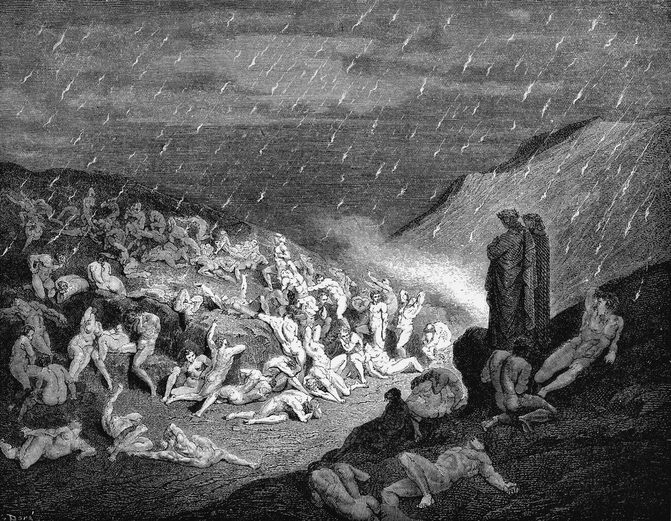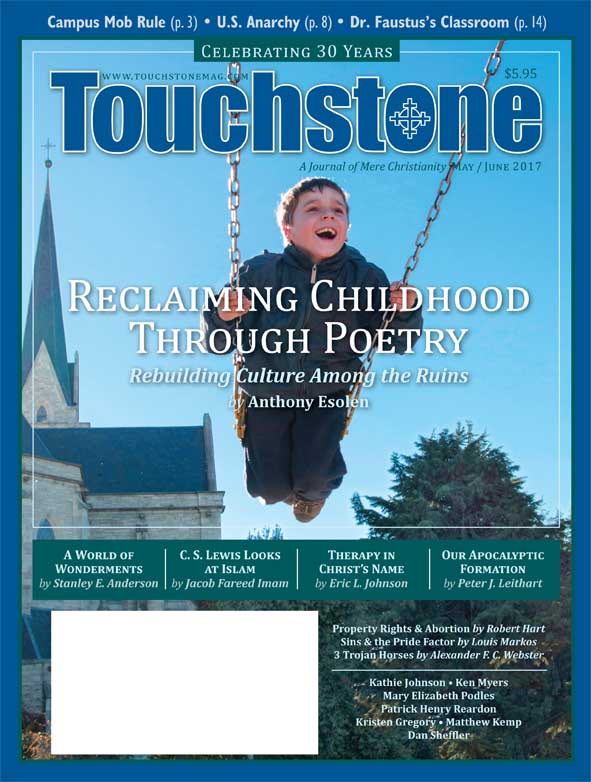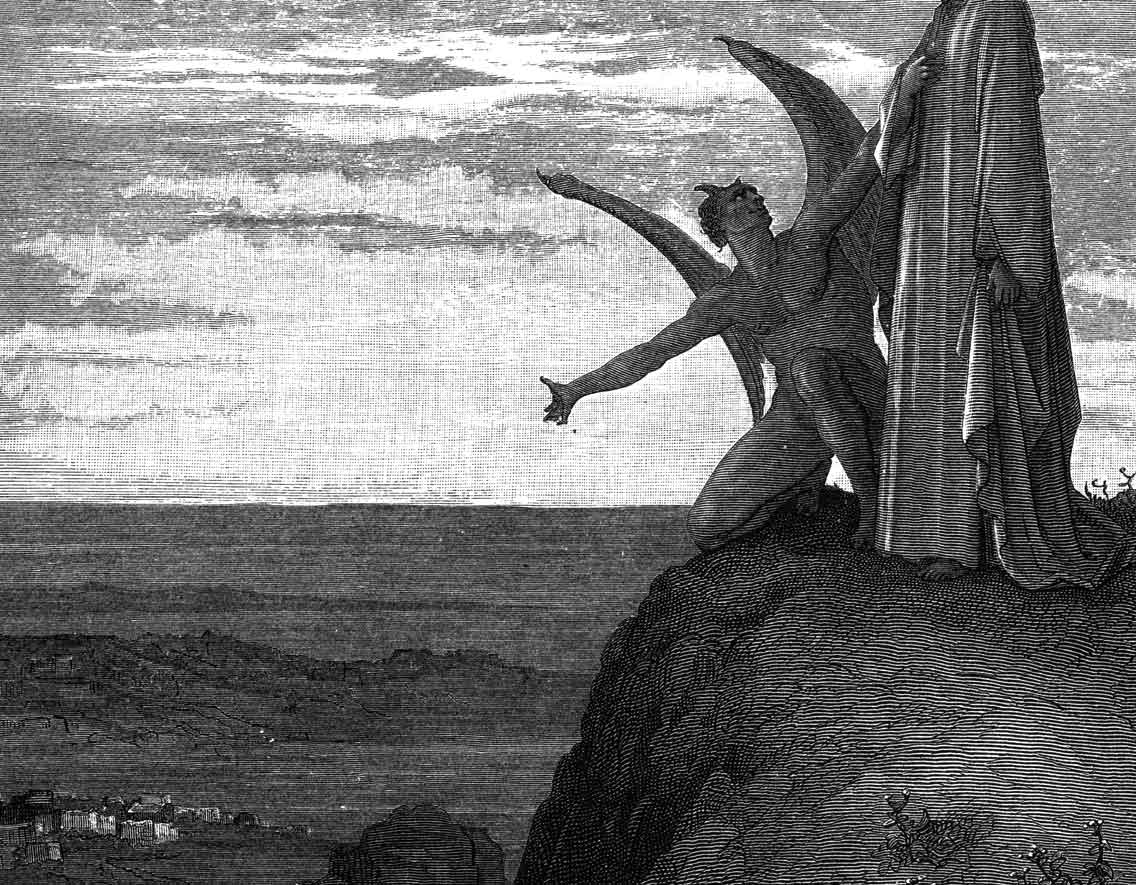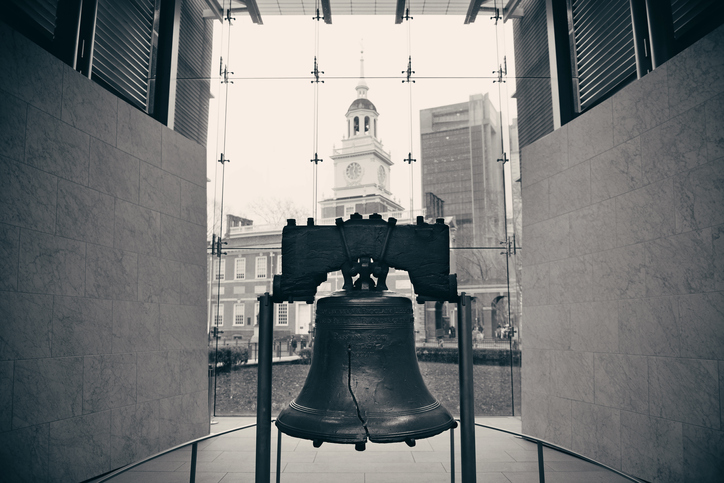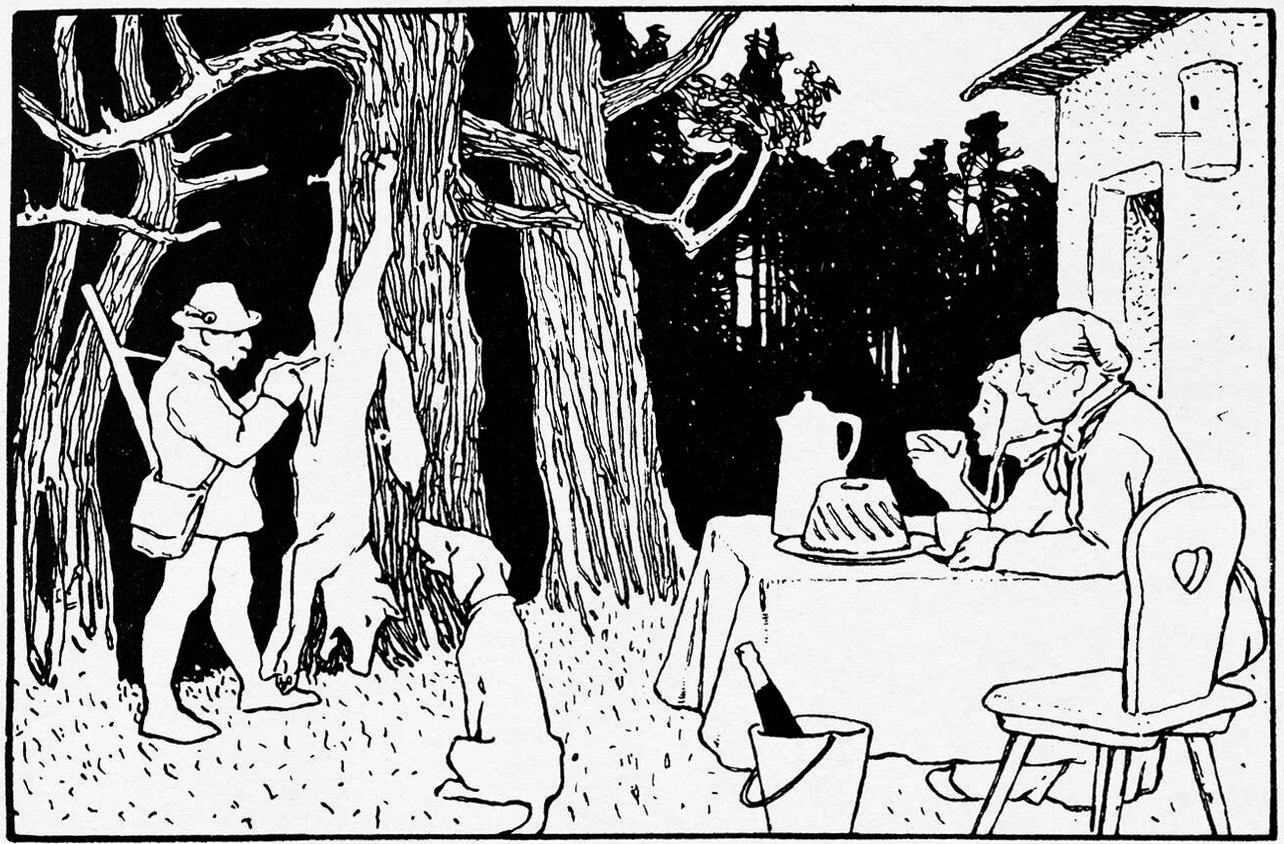View
The Pity & the Pride
Louis Markos on One Difference Between Sins of the Flesh & Sins of the Soul
Many in the orthodox Christian community have reminded us that homosexual behavior, though sinful, is less bad than pride, avarice, and malice, for the former constitutes a sin of the flesh while the latter are sins of the soul. They are correct to say this and, in doing so, make clear why, when Jesus was on earth, he was rejected by Pharisees and Sadducees and accepted by prostitutes and tax collectors.
Those trapped in the self-destructive lifestyles of the sins of the flesh—alcoholism, drug addiction, promiscuity—know they were meant for something better than the life they are living. They recognize their weakness and even their entrapment, and they usually feel some sense of shame after they indulge. That, of course, does not necessarily mean they will leave their sin behind or accept Christ's forgiveness, but moments will come when they catch a clear sight of their sin and feel a longing to escape.
Not so with the self-righteous hypocrite, the smug politician, the arrogant professor, the supercilious celebrity, the self-satisfied embezzler, the heartless exploiter, and the haughty "humanitarian." Such connoisseurs of the sins of the soul rarely catch sight of their own depravity. If anything, they think they are doing quite well and feel justified in looking down their noses at those less enlightened than themselves.
Dante's Distinction
Dante knew this distinction well. While the upper levels of hell contain the souls of those who succumbed to incontinence—carnality, gluttony, hoarding, wasting, wrath, and sloth—the lowest circles house those guilty of malice—violence and fraud. For Dante, the sins of incontinence (of the flesh) are less bad because they generally do not harm others directly and because they represent excesses or distortions of otherwise good things: marital love, eating, stewardship, generosity, righteous anger, and rest.
The sins of malice (of the soul), in sharp contrast, turn against others and constitute a deeper, more self-conscious kind of rebellion against the laws and person of God. Among these sins, fraud is worse than violence because, in order to betray someone, we must take the greatest of God's gifts, our reason, and pervert it to nefarious ends. That is why animals, though they can be violent, cannot be deceitful.
And that is why Dante—and the Bible!—would agree with many political liberals that white-collar criminals should be punished more harshly than blue-collar ones: not out of an envious desire to level society, but because the white-collar criminal generally does not commit his sin in a haze of passion or desperation or confusion, as a blue-collar offender might, but out of a cold, calculated sense of his own superiority, his own freedom from the rules that bind the ignorant masses of men, and his own status as a radically autonomous individual over whom even God does not hold any kind of claim.
The drunken frat boy, the casual user of marijuana, and the hormone-driven fornicator, whether heterosexual or homosexual, pale next to such a person. While we should be repelled by the latter, we should feel for the former a deep sense of sadness and even sympathy.
As C. S. Lewis once stated in a passage from his own audio recording of The Four Loves (a passage that did not make it into the published version of the book), "How a man can feel anything but bewildered pity for the genuinely homosexual I've never been able to understand." I concur. Pity, rather than righteous anger, should be the emotion that rises up within us when we contemplate a person, made in the image of God, who has succumbed to his homosexual proclivities and, as a result, left himself open to shame, sickness, depression, suicide, and substance abuse. So, yes, the church should condemn more harshly the hypocrites in its midst than the homosexuals.
The Most Arrogant Proclamation
But that is not the whole story. Back in the 1960s and 1970s it might have been appropriate to categorize homosexuality as a sin of the flesh, but not today. Over the last several decades, LGBT activists have transformed a misdirected desire into a supreme expression of pride and rebellion.
There is all the difference in the world between someone who slinks off into the darkness and indulges sins of which he is ashamed but which he cannot resist the temptation to commit, and someone who raises his fist up at God and proclaims, with insolent arrogance, "This is who I am, God, and you will not dare to tell me otherwise."
Speaking through Isaiah, God reveals himself in these words: "I am God, and there is no other; I am God, and there is none like me" (Is. 46:9). In the next chapter, the Lord addresses the daughter of Babylon, she who represents the depths of human wickedness and rises up in direct defiance of that God whose name is I AM THAT I AM. Of her and her rebellious nature, God says:
Now then, listen, you lover of pleasure, lounging in your security and saying to yourself, "I am, and there is none besides me. I will never be a widow or suffer the loss of children." . . . You have trusted in your wickedness and have said, "No one sees me." Your wisdom and knowledge mislead you when you say to yourself, "I am, and there is none besides me." (47:8,10)
At the root of all the sins of the soul lies that most arrogant of all proclamations: "I am, and there is none besides me." This statement fully expresses the desire to put oneself in the place of God, to determine for oneself, without any divine interference, exactly who one is and who one shall be. Such monumental conceit refuses to be taught or guided or even defined by the Creator who made us. It takes its own thoughts and feelings of the moment and makes them the sole standard for itself. Rather than tremble in the presence of a holy God, it presumes to teach God how he should behave.
Let me state this clearly: On Judgment Day, I would rather be a poor, uneducated man strapped with same-sex attraction who often gave in to his misdirected desires but who retained his awareness of guilt and longed to be free from it, than a rich, privileged heterosexual with a Ph.D. and a Th.D. who, without any sense of shame or self-doubt, used his prodigious intellect to twist the Bible into supporting a self-destructive lifestyle.
For the former, the riches of God's mercy are held out, but for the latter, what can be done? Can one who refuses even to contemplate his need for forgiveness be forgiven? Can one who tears apart the One God of the Bible, setting the so-called Old Testament God of Wrath against the so-called New Testament God of Love, truly be a follower of that God?
Knowing Better than God
The Church dealt decisively with the heresy of Marcionism over 1,800 years ago, but we would revive it as a cover for our refusal to call sin sin and to acknowledge that just because something feels "natural" to us, that does not make it right or godly or even healthy. (Ironically, the Marcionite approach does not even hold water for gay marriage, since Jesus himself defines marriage as the union of one man and one woman [Mark 10:5–9] and since Romans 1:18–32 presents the strongest condemnation of homosexual behavior in the whole Bible.)
Yes, to give in to one's passions does constitute a sin of the flesh, but to define oneself by those passions in knowing defiance of the Creator is to make that sin of the flesh into a worse sin of the soul. The same goes for those who use their gifts to whitewash and justify the sin of homosexuality. Those within the Church who advance the gay agenda are often motivated less by actual love and compassion for the individual sinner than by an arrogant and smug sense of moral superiority to the God of the Old Testament, by which they feel entitled to redefine sexuality and marriage.
It is one thing to feed and clothe a suffering illegal alien whom you find lying half-dead in the street. It is another thing to take a bus and sneak dozens of illegal aliens across the border. The former act displays Christian mercy in accordance with Jesus' parable of the Good Samaritan; the latter represents a direct and self-conscious defiance of the laws of the nation.
Of course, this analogy is not perfect. It may be that the laws are unjust. In that case, the one who breaks them often shows a higher respect for the law, especially when he is willing, like Martin Luther King Jr., to take the consequences that come with resisting unjust laws. But that is not the case with the laws of God. His laws are neither flawed nor tyrannical but rise up both out of his love for us and out of his knowledge of what is right and proper for the creatures he has made. God knows our ontological status and our true end (or telos), and his laws, including those regarding sex, reflect his perfect knowledge. When we attempt to alter those laws, we express, consciously or unconsciously, our prideful belief that we know our status and telos better than our Creator does.
So let us continue to show compassion to those trapped in the homosexual lifestyle. But let us do so in the manner of Jesus himself, who, after forgiving the woman caught in adultery, did not go on to redefine his marital and sexual laws, but commanded her—or, better, freed her—to go her way and sin no more (John 8:11).
Louis Markos , Professor in English and Scholar in Residence at Houston Baptist University, holds the Robert H. Ray Chair in Humanities. His 19 books include Lewis Agonistes; Restoring Beauty: The Good, the True, and the Beautiful in the Writings of C. S. Lewis; On the Shoulders of Hobbits: The Road to Virtue with Tolkien and Lewis; and From A to Z to Narnia with C. S. Lewis.
subscription options
Order
Print/Online Subscription

Get six issues (one year) of Touchstone PLUS full online access including pdf downloads for only $39.95. That's only $3.34 per month!
Order
Online Only
Subscription

Get a one-year full-access subscription to the Touchstone online archives for only $19.95. That's only $1.66 per month!
bulk subscriptions
Order Touchstone subscriptions in bulk and save $10 per sub! Each subscription includes 6 issues of Touchstone plus full online access to touchstonemag.com—including archives, videos, and pdf downloads of recent issues for only $29.95 each! Great for churches or study groups.
Transactions will be processed on a secure server.
more on liberalism from the online archives
more from the online archives
calling all readers
Please Donate
"There are magazines worth reading but few worth saving . . . Touchstone is just such a magazine."
—Alice von Hildebrand
"Here we do not concede one square millimeter of territory to falsehood, folly, contemporary sentimentality, or fashion. We speak the truth, and let God be our judge. . . . Touchstone is the one committedly Christian conservative journal."
—Anthony Esolen, Touchstone senior editor





